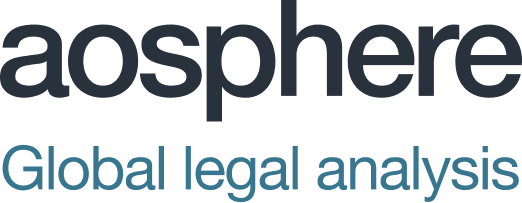Overview
In a climate of continued global economic volatility and rising operating costs, investment firms and funds are having to be strategic about their distribution methods. Relying on reverse solicitations to access investors may be attractive from a cost and administrative perspective. However, the regulatory landscape across the Americas differs greatly, with each jurisdiction taking its own approach to reverse solicitation (or not recognising it at all). Careful analysis on a jurisdiction-specific basis is therefore required to manage risk.
In the following article we take a look at the availability of reverse solicitation in North, South and Central America, and consider how firms may mitigate their risks.
Can I respond to a reverse enquiry on funds in Americas?
Broadly speaking, reverse solicitation is where an investor contacts the firm to express interest in the firm and/or its funds/services. In some jurisdictions across the Americas, provided certain conditions are met, it may be possible to respond to this expression of investor interest without triggering:
- firm level requirements, such as the requirement for firms to be licensed; and/or
- fund level requirements, such as the requirement to make a filing in respect of a fund.
In such cases, the key matter to be addressed in terms of each reverse enquiry is whether it meets the relevant conditions. For example, in the British Virgin Islands (BVI), there is no statutory definition or regulatory guidance on reverse enquiry. However, a firm may respond to a reverse enquiry without triggering both firm and fund level requirements, if conditions are met to ensure that the firm is not seen as carrying on investment business in the BVI.
In other jurisdictions, it may be that even where an investor makes a reverse enquiry, there may be a number of factors to consider. For example, in the United States, under the SEC regime, there is a very limited exemption from the broker-dealer registration requirements for an overseas firm effecting transactions in securities with or for a US investor, following a one-off unsolicited contact. However, this has a narrow application and is very fact specific, so must be approached cautiously following a full analysis of the facts and conditions. In addition, consideration would also still need to be given to other registration requirements under US law, such as under the Investment Company Act, the Securities Act and the Adviser’s Act. While there are workable routes in respect of each of these acts, none of these hinge on the activity being in response to a reverse enquiry. Care is therefore required to consider exactly how you structure your activities with US investors and which exemptions and/or safe harbours apply.
What counts as reverse solicitation in the Americas?
Unlike in the EU where there is a reverse solicitation framework that shapes the approach taken by individual member states, there is no regional concept for reverse enquiry that applies across the Americas region. It is therefore necessary to consider each jurisdiction’s national legislation. In addition, what counts as a reverse solicitation that may be permitted in a particular jurisdiction is often shaped by local market practice and/or the local regulator's guidance or tolerance levels, as opposed to being specifically provided for in national legislation.
For example, in Brazil, there is no legal definition of reverse enquiry or guidance from the regulator on the use or scope of a permitted reverse enquiry. However, marketing and selling of funds preceded by a reverse enquiry may be permitted if they satisfy a number of conditions to demonstrate that the firm is not actively marketing and selling in Brazil. The conditions include, for example, that each transaction should be preceded by a reverse enquiry and that transactions should be performed and executed outside Brazil. If the conditions are not met and it is not possible to fall within another exemption/exclusion, then a registration requirement at both firm and fund level may be triggered, and intermediation by a properly authorised agent in Brazil.
In Mexico, as a matter of market practice, firm and fund level registrations or authorisations are not triggered if a firm on a cross-border basis carries out active or passive marketing of a fund to a Mexican investor on a one-to-one basis, and a number of other conditions are fulfilled. This practice therefore does not hinge on the concept of reverse enquiry, as it covers both active and passive marketing. The one-to-one condition makes this otherwise similar to other jurisdictions with tolerated practice reverse enquiry regimes.
Tips for compliance
Our extensive coverage of the Americas in our Marketing Restrictions Asset Management services allows us to spot themes and trends on reverse solicitation practices. Although a jurisdiction-by-jurisdiction assessment is required, here are some best practice guidelines to bear in mind when responding to reverse enquiries from investors in North, South and Central America:
- Existence: You should clarify if there is a reverse enquiry regime (in some shape or form), and if so, its specific parameters and conditions. In particular, is it derived from legislation/regulation/guidance or tolerated practice, and what are the risks in relying on it?
- Scope: You should be clear on whether each transaction with a particular investor needs to be preceded by a separate reverse enquiry and whether each reverse enquiry needs to relate to a specific product/service or whether it can be more general. Note that follow-up communications and meetings with investors who have invested previously in a fund or have been recipients of investment services on the basis of a reverse enquiry may not continue to fall outside the scope of relevant restrictions.
- Frequency: Generally speaking, the higher the number of reverse enquiries responded to, the greater the risk of being viewed as conducting active marketing/selling activities. Also be mindful as to whether the jurisdiction has set a maximum number of investors to whom you may market/sell in response to a reverse enquiry by reference to public offer rules, or otherwise.
- Evidence: It should be demonstrated that the request was genuinely unsolicited and made at the initiative of the investor. This can often be done by keeping an audit trail of any communications and obtaining a written acknowledgement from the investor.
- Cross-border versus onshore activities: In many jurisdictions in the Americas, reverse enquiries can only be responded to from offshore, on a cross-border basis. You should check whether attendance at fly-in meetings or any onshore activities, even where requested by an investor, will negate the reverse enquiry.
- Type of investor: Often reverse enquiries from retail investors require more care and in many cases, reverse enquiries can only be accepted by institutional investors. Also be aware that in some jurisdictions pre-existing relationships with an investor may make it harder to prove the genuine nature of the reverse enquiry.
Final thoughts
The Americas has a diverse regulatory landscape, and each jurisdiction has its own unique regulatory framework for the marketing and selling of funds. Unlike the EU, there is no region-wide framework of legislation or guidance. Careful analysis of each jurisdiction’s regime should be undertaken to manage risks.
We have in-depth content on responding to reverse enquiries in relation to funds and financial services for all the below jurisdictions:
- Americas: Argentina, Bahamas, Bermuda, Brazil, British Virgin Islands, Canada (Alberta, British Colombia, Ontario and Quebec), Cayman Islands, Chile, Colombia, Costa Rica, Dominican Republic, Ecuador, El Salvador, Guatemala, Honduras, Mexico, Panama, Paraguay, Peru, United States, Uruguay and Venezuela
- Asia-Pacific: Australia, Brunei, China, Hong Kong SAR, India, Indonesia, Japan, Kazakhstan (excluding AIFC), Macau SAR, Malaysia, New Zealand, Philippines, Singapore, South Korea, Taiwan, Thailand and Vietnam
- Europe: Austria, Belgium, Cyprus, Czech Republic, Denmark, Finland, France, Germany, Gibraltar, Greece, Guernsey, Hungary, Iceland, Ireland, Isle of Man, Italy, Jersey, Liechtenstein, Luxembourg, Malta, Monaco, Netherlands, Norway, Poland, Portugal, Russian Federation, Spain, Sweden, Switzerland, Turkey and United Kingdom
- Middle East and Africa: Abu Dhabi Global Market (ADGM), Bahrain, Botswana, Dubai International Financial Centre, Egypt, Israel, Jordan, Kenya, Kuwait, Mauritius, Morocco, Nigeria, Oman, Qatar, Saudi Arabia, South Africa and United Arab Emirates
How aosphere can help
Our two online legal subscription services, Rulefinder Marketing Restrictions and Rulefinder Marketing Restrictions – Asset Management, can help you navigate regulatory complexities by providing practical guidance applicable to the marketing of financial products and services and the marketing of open and closed-ended funds and managed accounts, covering the position for institutional and retail investors across 80+ jurisdictions.
Key features of the services include a useful comparison tool, allowing you to compare across jurisdictions and regions, daily monitoring and email alerts and disclaimer language.





